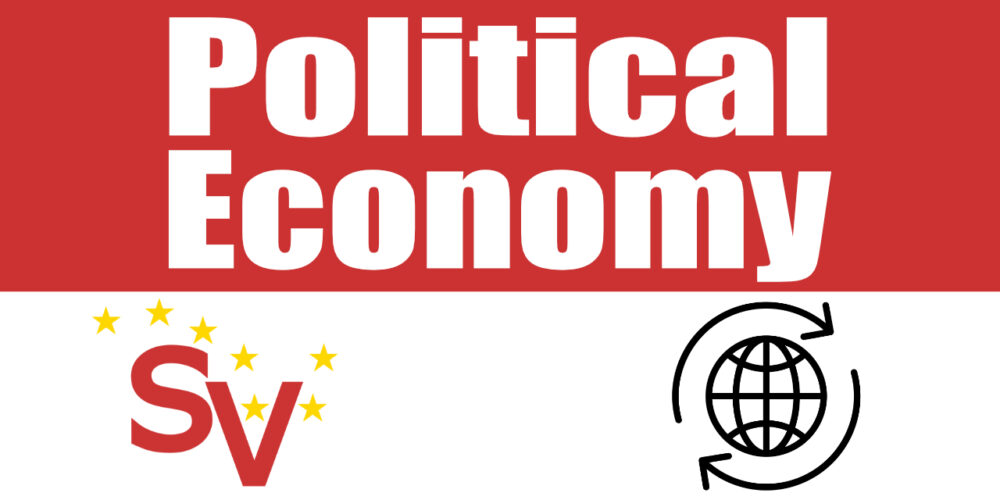Democracy is a combination of two Greek words, dēmos (people) and kratos (rule). As societies change, some words wither away, some new words come into existence, and some words change meaning.
Democracy has a broader meaning today than in ancient Greece. The democracy of the ancient Greeks had its limitations and flaws. Only a chosen few took part in the democratic process, unlike the universal suffrage we have now. At the same time the bourgeois democracy of the modern world has its own flaws as well. The idea of democracy should not be attached to the right to vote alone. Within the capitalist world even the largest democracy, India, where elections are held every five years, is descending into an electoral autocracy. In India the democratically elected government has no concern for the minority Muslims and Christians and is aiming to create a fascist Hindu nation.
Bourgeois democracy always keeps the door open for fascism. Even in a democracy such as the United States the voters get to choose between “Republicans” and “Democrats,” two parties with the same policies.
Many intellectuals have defined democracy in different ways. Bertrand Russell defined it as “a concern for the other.”
When nations were created on the basis of language, religion ethnicity etc., there is bound to be the creation of the “other.” The way the “other” are treated and how their concerns are addressed is the measure of democracy. Otherwise democracy will only be majoritarian rule, where minority opinions are not considered at all.
Capitalism is credited with developing democracy in a broader sense. Many bourgeois intellectuals claim that capitalism is synonymous with democracy. This argument is flawed when we take into account the colonial era. When democracy “flourished” in Europe, colonialism denied basic human rights in their colonies; the Asians and Africans were not even considered human beings.
Even though capitalism developed in the United States in the eighteenth century, it was only in 1965, after the civil rights movement, that black people were allowed to vote. It means that democracy is won by organised movements and is not a gift of capitalism.
Racism, which is anti-democratic, was a concept developed by capitalism to justify the exploitation of humans and natural resources from the Third World. The colonial powers justified racism on the grounds that people of colour are inferior to white people, and it was part of the white man’s burden to civilise the “barbarians.”
Even in “democratic” Europe, capitalism did not democratise the work-place. Capitalism is undemocratic in the way it organises production. The workers have an option to choose who will rule them in a bourgeois democracy but have no democracy in their work-place when it comes to decisions concerning their work.
After the Soviet Union collapsed there was a rush to push the neoliberal agenda throughout the world, on the grounds that “there is no alternative” (TINA). As empirical details reveal, the neoliberal phase of capitalism has only exacerbated the income inequality, austerity, debt traps and poverty in countries rich in resources.
Democracy has no meaning if wealth is not distributed democratically; as Angela Davis questioned, “The idea of freedom is inspiring. But what does it mean? If you are free in a political sense but have no food, what’s that? The freedom to starve?”
Socialism can be defined in simple terms: it is the extension of political democracy to social and economic democracy. If people don’t have social and economic democracy, then political democracy is meaningless.
True democracy can only be achieved through socialism. Capitalist democracy will only allow democracy to an extent that will suit the capitalists. If people rise in organised struggles to achieve economic and social democracy the capitalist system will trample democracy and will unleash fascism without hesitation. It was the big corporations such as Ford, IBM etc. that supported the Nazis in Germany and funded the eugenics project to establish the racial superiority of Aryans.
That is why Rosa Luxemburg said, “No democracy without socialism, and no socialism without democracy.” Democracy is also a right to dissent; as described by Howard Zinn, “Dissent is the highest form of patriotism.” But how much dissent is shown by the mainstream media today? Capitalism has converted the media into creators of opinions in favour of the ruling class, rather than reporting the truth and raising questions against power. People such as Julian Assange, who exposed the violations of imperialism, are behind bars in the bourgeois “democracy.”
With the emergence of capitalism there is evidence of an increase in military spending, which means money that is to be allotted for health services, housing, education and green energy are diverted to fighting wars. Arundhati Roy rightly said, “Once weapons were manufactured to win wars; now wars are manufactured to sell weapons.”
This is a direct consequence of capitalism, which is imperial and undemocratic in its very nature. When “intellectuals” say capitalism gifted us democracy, there is no need to believe them. Political democracy was won by people who fought for it; and that fight will follow through until we reach economic and social democracy through socialism.






